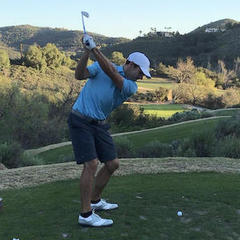Note: This thread is 3599 days old. We appreciate that you found this thread instead of starting a new one, but if you plan to post here please make sure it's still relevant. If not, please start a new topic. Thank you!
-
Topics Being Discussed Right Now on The Sand Trap
-
- 11,371 replies
- 1,033,778 views
-
"5 Minutes Daily" Practice Challenge 1 2 3 4 1035
By iacas, in Instruction and Playing Tips
- 5 minutes daily
- dedication
- (and 6 more)
- 18,616 replies
- 1,928,541 views
-
- 2,573 replies
- 364,006 views
-
- 709 replies
- 167,985 views
-
Have You Played Where a PGA, Champions, or LPGA Event Has Been Played?
By Maroon88, in Destinations and Travel
- 9 replies
- 251 views
-








Recommended Posts
Create an account or sign in to comment
You need to be a member in order to leave a comment
Create an account
Sign up for a new account in our community. It's easy!
Register a new accountSign in
Already have an account? Sign in here.
Sign In Now